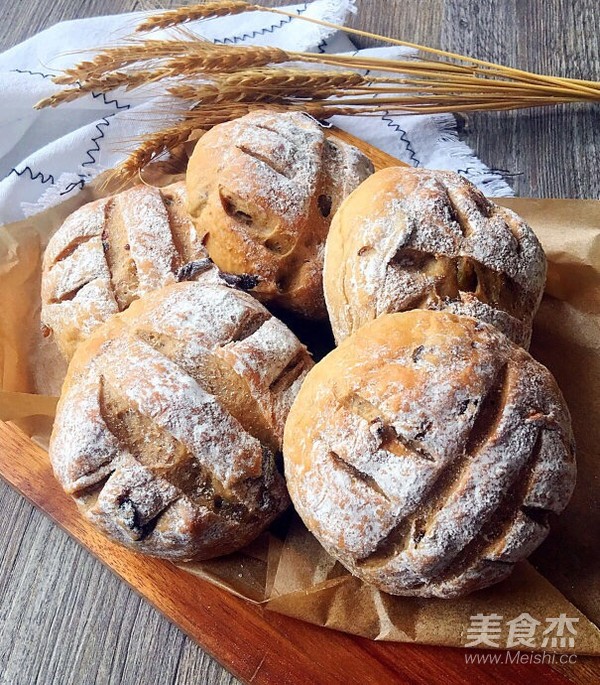Rum Brown Sugar Soft European Buns
1.
Soak raisins and longans in rum for 2 hours and set aside.
2.
In addition to the butter, put all the ingredients (including the rum used to soak the raisins and longans) into the mixing bucket. Note that the sugar and salt should be put into the liquid first, and the yeast will be put on the surface of the flour last.
3.
Knead the dough for 2 minutes to form a dough in the second gear first, and then knead for 6 minutes on the fifth gear. A total of 8 minutes for the dough can be initially expanded.
4.
Then add the softened butter.
5.
Then knead for 6-8 minutes in the fourth gear of the chef's machine, the dough can be fully expanded, that is, the glove film will come out.
6.
Wring the raisins and dried longans to remove excess water, knead it for a few times, mix in the dough, change to a clean basin, smear a thin layer of salad oil to prevent sticking, put the dough in the basin, cover with plastic wrap and leave it for a second time .
7.
After about an hour, the dough has doubled in volume. Dip a hole in the dough with your fingers. The hole neither collapses nor shrinks, indicating that the fermentation is complete.
8.
Take out the dough and vent it, then divide the dough into 5 portions.
9.
Shape the divided dough into a ball, put it in a baking tray, and cover with plastic wrap.
10.
The oven turns on the fermentation gear for secondary fermentation.
11.
The dough volume expands to twice as large
12.
Sprinkle high flour on the surface of the dough with a mesh sieve
13.
Use a sharp knife or blade to cut a cross on the surface of the dough.
14.
Preheat the oven up and down to 170 degrees, and bake for 30 minutes.
15.
Finished product


Tips:
1. The order of the ingredients is milk→honey→brown sugar→salt→flour→yeast. The yeast should be sprinkled on the flour and not directly touched with sugar or salt. Yeast is a single-celled plant. Sugar is the nutrient of yeast, but too much sugar will "stretch" the yeast. Salt can control the speed of yeast fermentation, but direct contact will "kill" the yeast.
2. The dough is initially expanded and butter is added. This is called the "post-oil method". Because the butter will rub and heat up during the mixing process, and the temperature increase will slow down the speed of the dough film. Therefore, putting butter when the dough enters the initial development stage will produce a faster film-out speed.
3. The bread tastes the best when the dough is fully expanded (glove film). To support the glove mask technique, spread butter evenly on the palm of your hand, take a small piece of dough (about 30g), and slowly spread it from the edge of the mask. You can get a flexible and transparent film like rubber gloves. It doesn't matter if the film is cracked, as long as the crack is smooth, it is also a sign of a perfect film.
4. In winter, it is best to have an oven with fermentation function to make bread, so that the fermentation is fast and stable, but the fermentation temperature should not be too high, otherwise it will kill the yeast.
5. Lower temperature will accelerate the aging of starch, so it is wrong to store bread in the refrigerator. But bread can be stored in the freezer. After it is completely frozen, the starch aging speed will be reduced and the shelf life will be longer. After the frozen bread is taken out, it can be heated in a microwave for consumption.